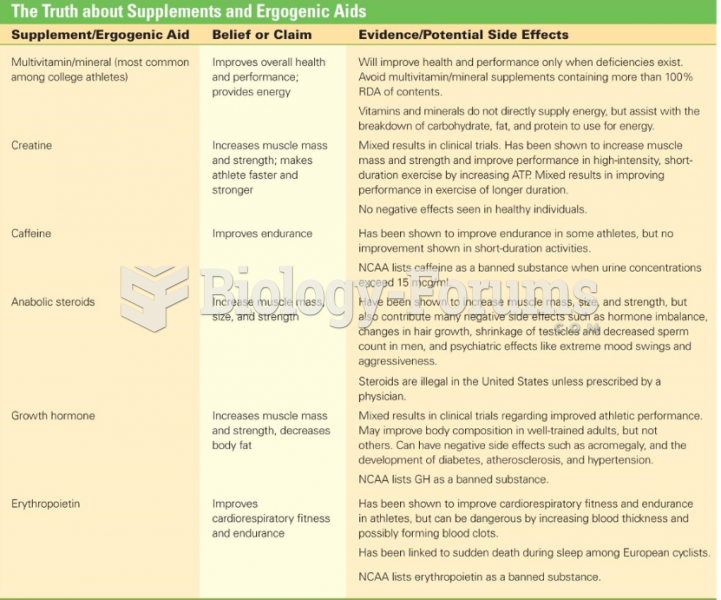|
|
|
The human body produces and destroys 15 million blood cells every second.
Nearly all drugs pass into human breast milk. How often a drug is taken influences the amount of drug that will pass into the milk. Medications taken 30 to 60 minutes before breastfeeding are likely to be at peak blood levels when the baby is nursing.
Never take aspirin without food because it is likely to irritate your stomach. Never give aspirin to children under age 12. Overdoses of aspirin have the potential to cause deafness.
Although not all of the following muscle groups are commonly used, intramuscular injections may be given into the abdominals, biceps, calves, deltoids, gluteals, laterals, pectorals, quadriceps, trapezoids, and triceps.
There are over 65,000 known species of protozoa. About 10,000 species are parasitic.
 Rituals such as the sacrament of the Anointing of the Sick are important expressions of religious be
Rituals such as the sacrament of the Anointing of the Sick are important expressions of religious be
 The first commercially successful typewriter, manufactured in quantity beginning in 1874, surely fue
The first commercially successful typewriter, manufactured in quantity beginning in 1874, surely fue





